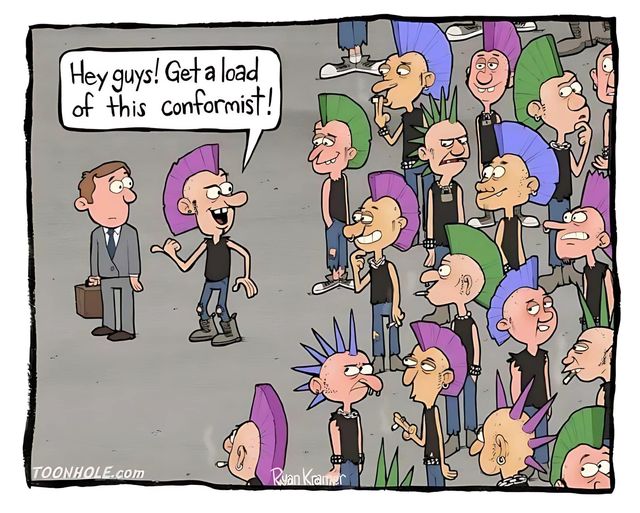The #socialweb is shifting away from corporate-controlled paths like #Twitter and #Facebook toward decentralized, more #DIY alternatives. The idea is simple: instead of a single company having control, decentralized protocols allow different platforms to connect while giving people the power to shape and control their digital paths.
Three major decentralized protocols have emerged:
- Fediverse (#ActivityPub) – The most established and widely used, forming a “native” backbone of the #openweb.
- Bluesky (#AtProto) – A Twitter-funded project that claims decentralization but is still highly centralized.
- Nostr – A relay-based, censorship-resistant protocol with interesting tech but major cultural and usability challenges.
While all three claim to support decentralization, only ActivityPub (the #Fediverse) actually delivers on this promise. An overview:
The Fediverse (ActivityPub) – The Decentralized #openweb
Background & history, the Fediverse is powered by ActivityPub, a W3C-recommended standard, since 2018. Unlike Bluesky and #Nostr, which are still evolving, ActivityPub is already a mature, widely adopted protocol. It was designed from the ground up, through a 20-year unbroken history to enable interoperability between platforms, meaning people on different apps can communicate seamlessly.
This #ActivityPub network exploded in popularity after Twitter’s collapse under Elon Musk, with Mastodon seeing millions of new users in 2022. Now there are meany popular apps & servers, it not just one platform – it’s a whole ecosystem of independent apps that mostly copy #dotcons:
- Mastodon – The most well-known microblogging platform, often compared to Twitter.
- PeerTube – A decentralized YouTube alternative.
- Pixelfed – A decentralized Instagram-style photo-sharing app.
- Pleroma / Misskey – Alternative microblogging platforms.
ActivityPub works through federation: Different servers (instances) talk to each other, creating a #4opens network of networks. How this works, you create an account on one instance, but interact with people across the entire Fediverse. Each server is independently operated, meaning no single company owns the network. There is an issue of instance Lock-In: If a server shuts down, yes, people must migrate manually, but this is a small tradeoff compared to the massive corporate control seen in more #mainstreaming paths.
Bottom Line: ActivityPub is the most decentralized and established protocol, already powering a thriving ecosystem of apps with real communities.
#Bluesky (AtProto) – Fake Decentralization, A shadow #Dotcons
Background & history, Bluesky started as a Twitter-funded project in 2019, originally backed by Jack Dorsey. It claims to be building a decentralized social network, but in reality, it’s architecture favers centralization, due to it being built to prioritise scaling. The #AtProto, allows for theoretical federation, but in practice, Bluesky is still a Twitter clone controlled by a single company.
Popular Apps & Servers
- Bluesky – The only major client, self-hosting is possible, but current federated servers are limited to 100 users, and Bluesky can refuse to federate with them.
How AtProto works: #DID-based identities – Users can theoretically move between services, but only if Bluesky allows it. Centralized moderation – The vast majority of users rely on bsky.social, meaning Bluesky still has the power to block or censor at will. Limited self-hosting, Bluesky restricts who can run a server and limits federated instances.
Bottom Line: Bluesky is currently a trap, a con, It looks decentralized but is a #dotcons, the normal corporate-controlled path.
Nostr – Interesting Tech, but bad culture
Background & history, #Nostr (Notes and Other Stuff Transmitted by Relays) was created by an individual in 2020 as a censorship-resistant social protocol. Where ActivityPub and AtProto, use server-based networks to build community and distribute moderation, Nostr uses a relay-based model where users broadcast messages across multiple relays. It gained popularity in #Bitcoin circles and received funding from Jack Dorsey (again).
Popular Apps & Clients
- Primal, Nos, Snort – Web-based clients.
- Damus – iOS client.
- Amethyst – Android client.
How #Nostr works, It is Relay-based, with no community focued on instances – no centralized servers, messages are published to multiple relays. Cryptographic Identity – people have opaque public/private keys instead of usernames. No true federation – people rely on relays to store and transmit data, but relays don’t communicate with each other like ActivityPub servers do. Difficult for adoption – The reliance on cryptographic keys makes it confusing, and there’s no built-in moderation system, so comminutes remain fragmented, its tech for the native #stupidindividualists paths. But still, in this, diversity is good and as it bridges it might become a useful project.
Bottom Line: Nostr is decentralized and censorship-resistant, but it’s not user-friendly or practical, its culture is a bad mix of #techbro and #geekproblem #encryptionist #shitcoiners
Which Decentralized Protocol is the Best?
ActivityPub (Fediverse) is a clear winner, it’s proven, widely adopted, and already functional with true federation across multiple apps, decentralized and people-controlled. Where #Bluesky (#AtProto) is a hidden #Dotcons which claims to be decentralized but is still controlled by Bluesky, Inc. Federation is limited, and self-hosting is discouraged thus is a Trojan horse for another corporate-controlled network. Nostr is interesting but niche, completely decentralized, but difficult to use. No federation between relays and not practical for mass adoption.
Final verdict: If you care about real decentralization, community, and people, ActivityPub (#Fediverse) is the clear choice.
What is needed next is to take the step in the Fediverse of moving beyond simply copying the #dotcons. It is time to reboot the #Openweb with a project like the #OMN. The Open Media Network is about taking control of our digital paths and building a future beyond the #dotcons. If we want a truly decentralized internet, one core message is that we need to support ActivityPub-based paths instead of getting fooled by corporate-backed “alternatives” like #Bluesky.
Join the Fediverse today: https://fediverse.observer/ It’s past time to reclaim the #openweb to build digital spaces that work for people, and the social change challenge we so urgently need.
One thing is clear, you can and need to walk away from the corporate #dotcons.





